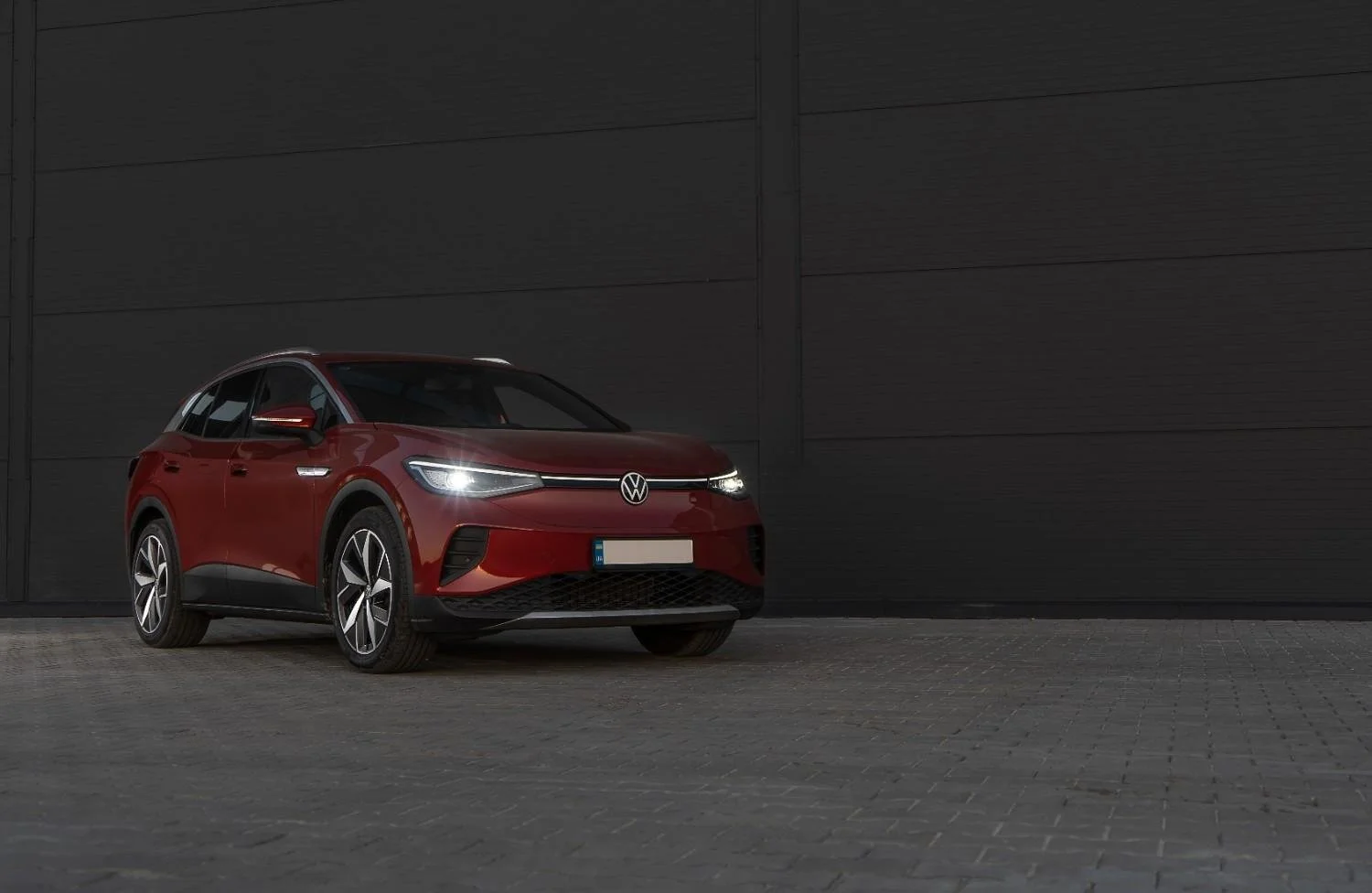Pension Salary Sacrifice Under Pressure: Why EV Schemes Remain Your Best Option
Source: Shutterstock
As businesses navigate the Autumn Budget on 26 November 2025, one message is becoming increasingly clear: whilst pension salary sacrifice faces potential restrictions, electric car salary sacrifice remains firmly protected as a government priority. For employers seeking to offset the April 2025 National Insurance increases whilst providing valuable benefits to their teams, the time to act on EV schemes is now.
The Pension Salary Sacrifice Storm
The speculation isn't subtle. A recent BDO survey found that 94% of C-suite executives in mid-market businesses expect restrictions on pension salary sacrifice schemes, with only 6% seeing an equal chance either way and less than 1% thinking restrictions are unlikely.
This follows HMRC's May 2025 research report testing three hypothetical scenarios for reducing salary sacrifice tax benefits, which experts say suggests "changes to salary sacrifice are firmly on the agenda". The scenarios explored included removing NIC exemptions entirely, removing both NIC and tax exemptions, and introducing a £2,000 annual threshold above which exemptions would no longer apply.
Why Pensions Are in the Treasury's Sights
The numbers tell the story. Tax relief on pensions cost the UK government approximately £52 billion in 2023/24, with NICs reliefs accounting for £23.5 billion and Income Tax relief for £28.5 billion. With the Treasury under pressure to raise revenues and close fiscal gaps, pensions relief represents one of the largest untapped areas.
Kate Smith, head of pensions at Aegon, warned: "Any move to reduce or remove the benefits of salary sacrifice would be a blow to both employers and pension savers, potentially leading to lower retirement savings outcomes".
The NIC Increase: Why Salary Sacrifice Matters More Than Ever
Regardless of what happens to pensions, one fact remains certain: employer National Insurance contributions increased from 13.8% to 15% in April 2025, whilst the threshold at which employers become liable to pay NIC reduced from £9,100 to £5,000.
For a business with employees on the mean average UK wage of £36,000, this amounts to an increase in annual costs of £937.80 per employee, or 2.61% of salary. For a company with 100 employees, that's an additional £93,780 in employment costs annually.
CIPD research from February 2025 reveals that 25% of employers plan to make redundancies in the three months leading up to March 2025, suggesting businesses are struggling to offset the rise in National Insurance contributions. However, there's a better solution than redundancies.
How Businesses Are Responding
A proactive 34% of businesses are leveraging salary sacrifice schemes to mitigate rising costs, whilst 32% are considering headcount reductions and a quarter plan to scale back expansion and growth. The contrast is stark: businesses either embrace strategic solutions or make painful cuts.
The savings potential is significant. According to Aon's calculations, a small company with 10 employees earning £35,000 per year would face a £9,200 rise in its National Insurance bill following the April changes. However, paying 5% of employees' income into pensions instead of wages would save £2,625, offsetting about 30% of the NIC increase.
But what if pension salary sacrifice faces restrictions? This is where electric car salary sacrifice schemes become even more valuable.
EV Salary Sacrifice: Protected, Proven, and Ready to Go
Whilst pension salary sacrifice faces an uncertain future, electric car salary sacrifice remains robustly protected by government policy. The Chancellor has already locked in Benefit-in-Kind (BiK) rates until 2029, ensuring long-term certainty for employers and employees.
The BiK Framework: Clarity Until 2029 (and Beyond)
EV BiK rates are set at just 3% for 2025/26, rising by 1% each year until 2027, then by 2% annually until capping at 9% in 2029. This remains far below the maximum 37% rate applied to petrol and diesel vehicles, demonstrating the government's clear intent to keep EVs affordable.
This certainty matters enormously. Whilst pension schemes face potential disruption, businesses implementing EV salary sacrifice schemes can plan with confidence, knowing the tax framework will remain stable.
Real NIC Savings from EV Schemes
Electric car salary sacrifice delivers the same National Insurance savings as pension schemes, but with added protection from government policy changes. Businesses running EV car schemes through salary sacrifice platforms are achieving average annual NIC savings of £56,000 per participating business.
For an employee earning £40,000 who salary sacrifices £400 monthly (£4,800 annually) for an electric car:
Employer NIC savings: £720 per year (15% of £4,800)
Employee savings: 20-50% on the EV compared to personal leasing, plus income tax and employee NIC savings
Multiply this across a team of 50 employees, and businesses can save £36,000 annually in employer NICs alone through EV salary sacrifice schemes.
Why Employers Trust EV Schemes
Unlike pension salary sacrifice, which faces an uncertain future, electric car salary sacrifice schemes offer:
Government backing: Aligned with the UK's Net Zero objectives and the 2030 zero-emission vehicle mandate
Long-term certainty: BiK rates locked until 2029, with expectations for continued low rates to 2035
High engagement: Employees value tangible benefits they can see and use daily
Complete employer protection: Industry-leading providers like The Electric Car Scheme offer protection from day one against early termination costs
The Strategic Advantage: Acting Now
The current environment presents a unique window of opportunity for businesses. Whilst competitors wait to see what happens with pension salary sacrifice, forward-thinking employers are securing their position with EV salary sacrifice schemes.
Why the Time to Act is Now
NIC increases are already here: The 15% employer NIC rate took effect in April 2025, and businesses need solutions today, not tomorrow
Employee demand is strong: With the cost-of-living crisis continuing, employees are actively seeking benefits that deliver real savings. Electric car salary sacrifice saves drivers 20-50% compared to personal leasing
Pension uncertainty: Businesses establishing EV schemes now gain a stable, government-backed tool whilst pension arrangements face potential disruption
Competitive advantage: The best electric cars to salary sacrifice are becoming increasingly affordable and practical, with ranges exceeding 250 miles and charging infrastructure expanding rapidly
How The Electric Car Scheme Delivers Value
The Electric Car Scheme was recently named the UK's Best Salary Sacrifice Provider for 2025 by Car Sloth, recognising our comprehensive approach:
No cost to employers: Zero setup fees and no ongoing administrative burden
Complete Employer Protection: Industry-leading safeguards from day one protect businesses if employees leave or face redundancy
Competitive pricing: Best market prices across new, used, and subscription electric vehicles
The Charge Scheme: Our innovative add-on allows employees to salary sacrifice their EV charging costs, saving an additional 20-50% on all charging at home, work, or public stations
Trusted service: Rated "Excellent – 5 stars" on Trustpilot by thousands of customers
Complementary Benefits: Not Either/Or
Importantly, electric car salary sacrifice doesn't replace pension contributions—it complements them. Businesses can offer both, giving employees choice whilst maximising NIC savings across different benefit categories.
Even if pension salary sacrifice faces restrictions, EV schemes remain untouched, providing a stable foundation for your benefits strategy. Combined with other salary sacrifice options like cycle-to-work schemes and technology purchases, businesses can create a comprehensive benefits package that delivers value whilst managing rising employment costs.
Looking Ahead: Certainty in Uncertain Times
As the Autumn Budget approaches, businesses face difficult decisions. Employers have expressed concerns that changes to pension salary sacrifice could affect employee morale, particularly regarding "the additional charges to NI not previously incurred". However, electric car salary sacrifice offers a different path.
The government has shown strong leadership in protecting EV salary sacrifice, recognising its critical role in achieving Net Zero whilst supporting working families. The Chancellor has locked in BiK rates until 2029, giving employees the ability to save 20-50% on the cost of an electric car until at least then, with expectations for low BiK rates to remain in place until 2035.
For businesses, this means certainty. Whilst pension arrangements face potential upheaval, EV salary sacrifice schemes provide a stable, government-backed tool that delivers tangible value to employees whilst offsetting rising NICs.
Take Action Today
Don't wait for the Budget to confirm what 90% of employers already expect. Establish your electric car salary sacrifice scheme now and give your business the certainty it needs whilst providing your team with a benefit they'll genuinely value.
For employers: Discover how The Electric Car Scheme can help you offset rising NICs whilst enhancing your employee value proposition. Book a demo today to explore how our comprehensive platform delivers value from day one.
For employees: See how much you could save on a new electric car through salary sacrifice. Get an instant quote and start your journey to more affordable, sustainable driving.
The future of salary sacrifice is electric. Make sure your business is ready.
Are you an employer?
BOOK A DEMOAre you an employee?
SEE AVAILABLE CARSYou might also like…
Last updated: 23/10/2025
Our pricing is based on data collected from The Electric Car Scheme quote tool. All final pricing is inclusive of VAT. All prices above are based on the following lease terms; 10,000 miles pa, 36 months, and are inclusive of Maintenance and Breakdown Cover. The Electric Car Scheme’s terms and conditions apply. All deals are subject to credit approval and availability. All deals are subject to excess mileage and damage charges. Prices are calculated based on the following tax saving assumptions; England & Wales, 40% tax rate. The above prices were calculated using a flat payment profile. The Electric Car Scheme Limited provides services for the administration of your salary sacrifice employee benefits. The Electric Car Scheme Holdings Limited is a member of the BVRLA (10608), is authorised and regulated by the FCA under FRN 968270, is an Appointed Representative of Marshall Management Services Ltd under FRN 667174, and is a credit broker and not a lender or insurance provider.
Copyright and Image Usage: All images used on this website are either licensed for commercial use or used with express permission from the copyright holders, in compliance with UK and EU copyright law. We are committed to respecting intellectual property rights and maintaining full compliance with applicable regulations. If you have any questions or concerns regarding image usage or copyright matters, please contact us at marketing@electriccarscheme.com and we will address them promptly.




